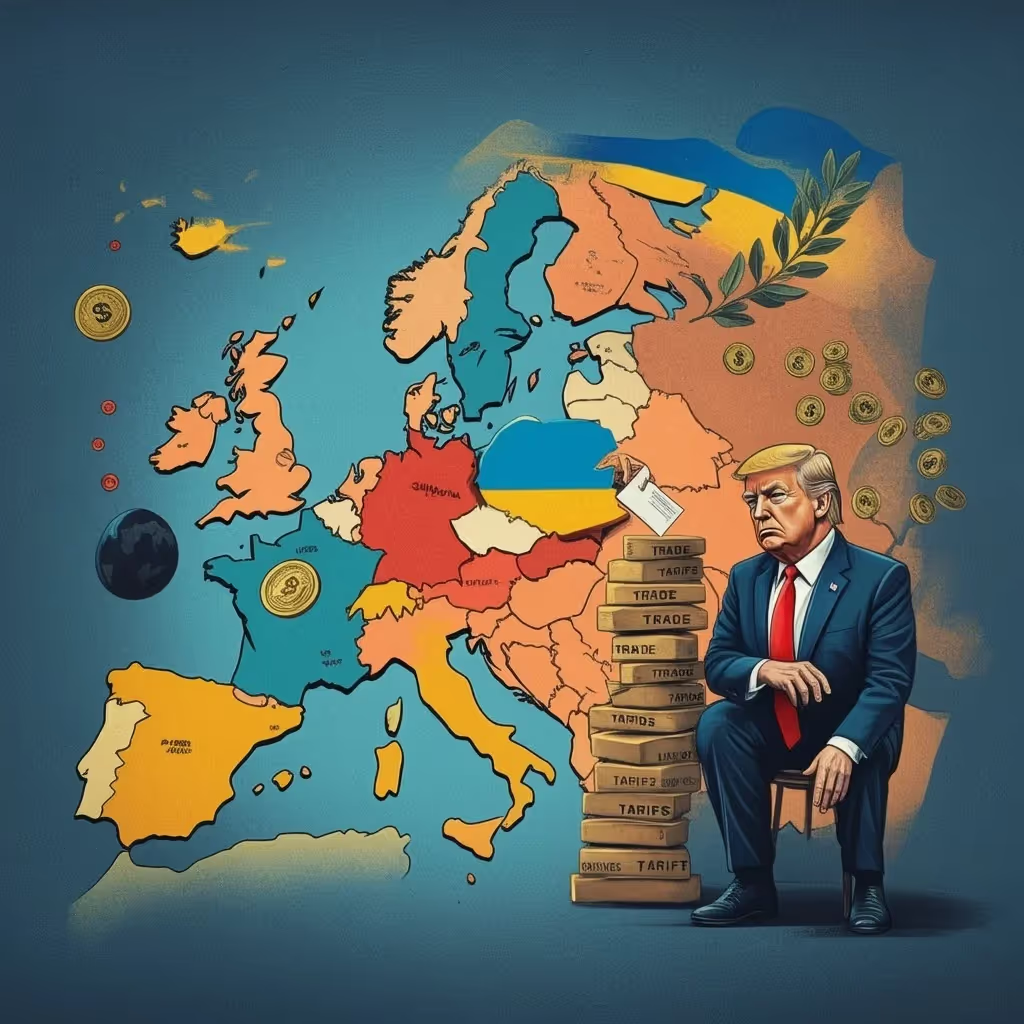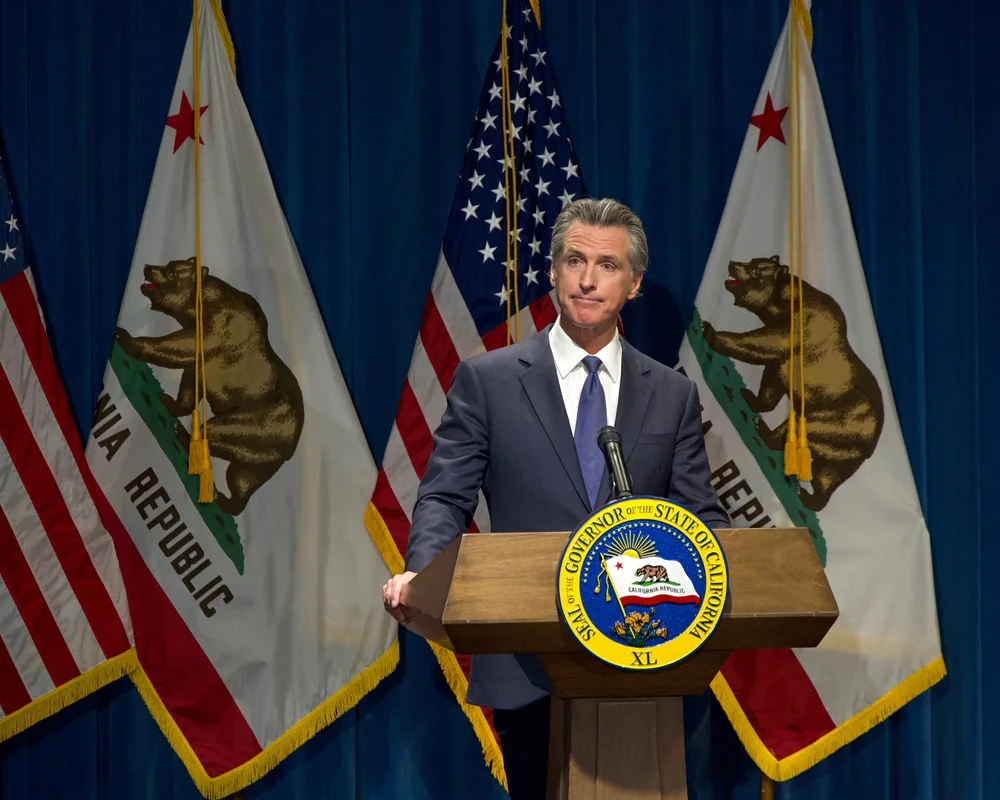
The Puzzles of Trumponomics 2.0
The Trump administration is riven with economic contradictions that will undercut the effects of good policy choices by mistaken policy decisions.
No presidential administration is without its economic policy contradictions. Over time, pressures from interest groups, policy fights between key officials, or the need to respond to crises invariably fuel substantial inconsistencies in an administration’s economic positions that become increasingly difficult to paper over.
That said, most administrations begin by presenting themselves as undergirded by and intent on pursuing a coherent set of economic propositions. This, however, is less evident in the case of President Donald Trump and his incoming second Administration. The economic policies that Trump and his advisors have signaled reflect contradictions that defy easy resolution. Nowhere is this more evident than in trade policy, regulation, and foreign direct investment. In these and other spheres of Trumponomics 2.0, economic puzzles abound.
Tariffs, Prices, and Cronyism
A centerpiece of Trump's economic agenda is the intention to use tariffs in extensive and targeted ways that Trump believes will achieve particular economic and non-economic objectives. These range from bolstering the U.S. manufacturing sector to pushing particular countries to do more to prevent illegal immigrants from entering the United States.
Leaving aside the issue of whether increased tariffs will realize these ends, such a trade policy will undermine the new administration’s ability to actualize some of its other economic goals, for example, Trump’s promise to reduce prices and living costs.
Tariff increases by America will translate directly into higher production costs for U.S. companies as they incur higher import costs or have to use more expensive domestic sources. These increased costs will be passed on to American consumers. That means higher prices for everyone. But less-well-off Americans—many of whom, rightly furious with the inflation that marked Joe Biden’s presidency, voted for Trump in 2024—will feel more impact because of their lower incomes.
Another effect of these tariff-induced costs will be to reduce the benefits of the expiring 2017 Tax Cuts and Jobs Act that Trump wants to extend. One study, for instance, suggested that “Trump’s proposed tariffs and partial retaliation from all trading partners would together offset more than two-thirds of the long-run economic benefit of his proposed tax cuts.”
Tariff increases will also work at cross-purposes with those parts of Trump’s economic agenda which involve breaking up the cronyism that defines so much of both sides of politics in Washington D.C. Whatever final form is taken by the Trump Administration’s new tariff regime, many American businesses will take advantage of a protectionist-friendly environment to lobby for favors such as subsidies, import quotas on foreign-made products, or increased tariffs on goods and services produced by their foreign competitors.
That is the lesson of every case where a government signals its embrace of protectionist measures, the Smoot-Hawley Tariff of 1930 being the most notorious example. In other words, any shift towards protectionism cannot help but provide more opportunities for the influence-peddling (not to mention all the economic inefficiencies that accompany it) that Trump regularly denounces.
Deregulating While Regulating
A second area in which contradictions characterize Trumponomics 2.0 concerns regulation. Throughout 2024, Trump promised to reduce the burden of compliance costs for American businesses, especially regarding environmental regulation.
Trump often stresses that deregulation was successfully advanced during his first administration. The record suggests that significantly fewer regulations were enacted in Trump’s first term than those of President George W. Bush and President Barack Obama. This owed much to Trump appointing many individuals with strong deregulatory inclinations. He also effectively promoted deregulation in specific industries, most notably in the financial sector and oil and gas.
When it comes, however, to labor markets, there are indications that the second Trump administration may go in the opposite direction. Nothing underscored this point more than the nomination of former Congresswoman Lori Chavez-DeRemer as Secretary of Labor.
Chavez-DeRemer is that rare Republican: a supporter of the Protecting the Right to Organize Act. This proposed legislation would abolish right-to-work laws in states and limit freelance and contract work by redefining the word “contractor” to mean “employee,” thereby subjecting such individuals to federal workplace laws. Chavez-DeRemer also backed the proposed Public Service Freedom to Negotiate Act. Its purpose was to expand union power in one of the few areas where American unions have maintained significant membership: the public sector.
Chavez-DeRemer’s policy preferences suggest a shift away from the deregulatory stances towards labor markets pursued during the first Trump Administration under Labor secretaries like Eugene Scalia. In the background to this change is the effort of Trump and some Republican politicians—including Trump’s running-mate J.D. Vance and Senator Josh Hawley—to cultivate unionized workers and union leaders as part of the effort to build the coalition that helped put Trump in the White House in 2016 and 2024.
Constructing election-winning coalitions is what politicians do. But a president who sees the value of deregulation in boosting economic growth is not advancing his agenda by appointing people supported by groups who regard increased labor market regulation as part of their raison d’être.
Flexible labor markets are critical to efficiently allocating people to jobs for which they have the skills and experience in accordance with the demand for workers. Conversely, over-regulated labor markets result in job vacancies staying open too long, undermine businesses’ ability to hire and fire according to their needs and general economic conditions, and (as numerous EU economies illustrate) generate higher unemployment over the long run. In short, a Trump administration that presided over increased labor market regulation would end up diminishing the effects of efforts by the same administration to roll back the swathe of new regulations introduced during the Biden presidency.
Encouraging and Impeding Foreign Direct Investment
A third example of inconsistency in economic policy likely to mark the second Trump Administration concerns foreign direct investment (FDI). Since 2012, America has been ranked as the world’s premier destination for FDI. On several occasions, Trump has affirmed that he wants this lead to continue and grow.
In a September 2024 speech, for example, Trump stated that he would attract more FDI by lowering the corporate tax rate for companies that produce in America, reducing regulatory compliance, making federal land available for foreign businesses that set up shop in America, and providing low-cost energy. While details of particular measures (like the federal-land use proposal) remain vague, some would make America an even more attractive FDI destination.
Against this, however, we have to weigh the signal sent by President Trump’s repeated insistence that he would stop Japanese steelmaker Nippon Steel’s bid to purchase the long-struggling but iconic American steel producer U.S. Steel.
For decades, U.S. Steel has suffered from problems like a failure to keep pace technologically and an unwillingness to adapt to competition from abroad. For most of its existence, U.S. Steel’s preferred way of addressing such challenges was to secure subsidies from the Federal government or hide between import quotas and “Buy American” rules.
From this standpoint, a Nippon purchase offers the chance of a radical and long overdue change in trajectory for U.S. Steel. Little wonder, then, that most U.S. Steel shareholders support the sale. On the day Nippon’s intention to purchase was announced, U.S. Steel’s share price went up by 27 percent—a strong sign of market confidence.
The purchase, however, has been resisted by the United Steelworkers (USW) union on what it calls economic and national security grounds. Their position has been backed by Republicans like Hawley, Vance, and Marco Rubio, and Democrats like John Fetterman, Bob Casey, and Kamala Harris. President Joe Biden has also signaled concerns about the deal and may well block it.
Yet there is no evidence that Nippon’s bid for U.S. Steel puts national security in peril. Japan is, after all, a strong U.S. ally and the no. 1 ultimate owner beneficiary (UBO) source for foreign investment in America. U.S. Steel is not even America’s no.1 domestic steel producer. The United States also has plentiful steel supplies from other domestic sources and foreign allies like Japan.
As for economic security, U.S. Steel has been shedding jobs for decades. From a high of almost 350,000 employees in 1945, it had decreased to 171,000 by 1979. In December 2023, it employed 21,803 people, of whom barely half (11,000) are USW members. Significantly, Nippon has undertaken to invest almost $1.4 billion in those U.S. Steel factories represented by the USW and agreed to neither shunter plants nor fire workers during the period of the current labor agreement between management and unions.
These facts suggest that cross-party opposition to Nippon’s buying U.S. Steel has more to do with pandering to the economic populist sentiment that generates political support in some regions of America than genuine concerns about national security or jobs. From a policy standpoint, however, the trouble is that Trump’s opposition to the deal clashes with his intent of accelerating foreign investment in America.
Trump’s hostility to the Nippon purchase indicates two things to foreign investors. First, purchasing and reviving ailing American companies or putting capital into American businesses in particular economic sectors risks running into significant opposition by American legislators, unions, and special interests, invoking bogus national security arguments and dubious economic claims. Second, such arguments and claims will be received sympathetically by those in the White House with strong economic nationalist views.
These possibilities will diminish foreigners' incentives to invest. So will the prospect of more foreign investments being subject to review by the Committee on Foreign Investment in the United States (CFIUS), the interagency committee charged with reviewing the national security implications of transactions involving foreign investment in America, and which recently could not arrive at a consensus about whether or not the U.S. Steel deal should be allowed to proceed.
Trump’s first administration stopped or forced the abandonment of more foreign investment transactions on national security grounds than either the Obama or Biden administrations. There is also every reason to believe that the second Trump administration will follow the Biden Administration’s lead in adding to the number of criteria CFIUS must consider when assessing the national security significance of foreign investments. That will increase the compliance costs for many potential foreign investors—not just companies with, say, Chinese, Russian, or Iranian connections. Once again, such a development would compromise Trump’s deregulatory aspirations.
Undermining Yourself
Close scrutiny of these and other economic policies suggest that the Trump administration will be torn between its ambition to enhance economic growth and its willingness to placate particular constituencies. All administrations must wrestle with this type of challenge. However, at work in the second Trump administration, there will be varying degrees of commitment to economic nationalist assumptions that fuel policies likely to undermine growth.
I suspect some key members of Trump’s economic team are less smitten with protectionism or dalliances with labor unions than others. What matters, however, is that President Trump either believes that the contradictions detailed above are 1) not contradictions or 2) that they can be managed.
The problem is that the contradictions are real and that they will result in some of the effects of good policy choices being undercut by mistaken policy decisions. No amount of rhetorical finessing can alter that.
Like millions of Americans, I want the Trump presidency to be successful in achieving better economic outcomes for all Americans. If implemented, many of Trump’s proposals for deregulation, tax reform, and downsizing federal agencies’ size and powers would go some way to achieving that goal. However, if some economic puzzles are not resolved in market-friendly ways, realizing this objective will be much harder, if not impossible, for the second Trump administration than it needs to be.
Samuel Gregg is the Friedrich Hayek Chair in Economics and Economic History at the American Institute for Economic Research.
Economic Dynamism

Unlocking Public Value: A Proposal for AI Opportunity Zones
Governments often regulate AI’s risks without measuring its rewards—AI Opportunity Zones would flip the script by granting public institutions open access to advanced systems in exchange for transparent, real-world testing that proves their value on society’s toughest challenges.

The Causal Effect of News on Inflation Expectations
This paper studies the response of household inflation expectations to television news coverage of inflation.

Downtowns are dying, but we know how to save them
Even those who yearn to visit or live in a walkable, dense neighborhood are not going to flock to a place surrounded by a grim urban dystopia.

The Housing Crisis
Soaring housing costs are driving young people towards socialism—only dispersed development and expanded property ownership can preserve liberal democracy.

The Economic and Constitutional Vices of California’s “Once-only” Wealth Tax
California's proposal to tax billionaires seems at first menacing, but could have drastic negative consequences for the future of the state.
.webp)
California’s Proposed Billionaire Tax and Its Portents for Normal People
The deeper significance of California's billionaire tax is in how it redefines what it means to own property in the United States.


.avif)

.jpeg)




.jpg)





